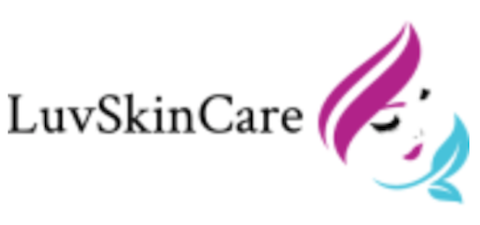With all of the fun ingredients that go into skincare products nowadays, it can be quite easy to be a bit sucked in by the catchy packaging and cute titles.
Who would not want to use a masked called Watermelon Glow that is bright pink and in an adorable minimalist tub? There are masks literally filled with glitter and others that feel like slime.
When surrounded with so many fun things to try, consumers often forget to look into the actual effectiveness of the product they are spending their hard earned cash on.
Sure, glitter is fun but is it going to clear up my acne and alleviate dryness? Probably not.
Enter glutathione.
Contents
Table of Contents

So, What Is It?
Glutathione may not be as fun to say as avocado creme or as interesting as activated charcoal but it is a skincare powerhouse. The peptide contains three vital amino acids that play numerous roles in keeping your body (and skin) healthy.
In fact, some researchers have stated that the levels of glutathione in the body may be a good indicator of expected lifespan! In short, this stuff is pretty important and you should try to maintain a healthy level of it within your body at all times.
What Does It Do?
A better question is “what does it not do?”. Glutathione acts as an antioxidant that positions itself within your cells, making it incredibly effective. From there, it prevents bodily damage on a cellular level, keeping your body healthy and free of free radical damage and a host of other issues.
It also acts as a protective shield against xenobiotics like carcinogens, drugs, and environmental pollutants while also preventing oxidative stress that has been linked to the formation of Parkinson’s and Alzheimer’s.
Additionally, maintaining a healthy level of glutathione assists in regulating your metabolism, preventing excessive weight gain and balancing out your overall health.
Does Glutathione Help Heal Acne?
It very possibly does. Though more testing is needed to conclusively link glutathione levels and acne formation, it is believed that maintaining a healthy level of the peptide can aid in clearing up problem skin areas. This is due to a myriad of reasons, all linked to its amazing abilities to act as a sort of cellular level bodyguard.
For starters, glutathione is known to aid in blood sugar regulation. When your blood sugar spikes, your body releases insulin that can result in inflammation. This inflamed state can impact your skin, causing it to be irritated, sparking oil overproduction, which clogs your pores. Bacteria then moves into the clogged pores, causing an infection to begin that forms into a pimple.
With something like glutathione to regulate your blood sugar, you do not have to worry as much about sudden spikes. In fact, many doctors recommend glutathione supplementation to diabetics to aid in preventing diabetes related complications!
Since glutathione reduces the impact of oxidative stressors, it has been known to directly help with preventing and treating acne breakouts. In people with acne, it has been frequently noted that they have lowered levels of glutathione. This means they are more open to free radicals and oxidation, both of which damage the skin and cause it to be more susceptible to bacterial infection.
With a supplemented level of glutathione, your body has an extra boost of defense, helping prevent infections from spreading and forming in the first place.
Additionally, if you suffer from dark spots and mild acne scarring, glutathione may help to make the damaged areas less visible. When taken orally, glutathione supplements have been able to rapidly and safely decrease the appearance of dermal damage due to the high antioxidant content. It also helps the body retain moisture, making it look plump which aids in hiding indented acne scars.
Typically, this type of treatment does require the supervision of medical professionals and can be rather pricey but, if you have the time and money, it can be a very rewarding process.
How to Up Your Glutathione Levels
Supplementation is probably the easiest way to increase your glutathione levels. You can find liquid, powder, capsule, tablet, and a host of other formats. Be warned, this stuff does taste rather nasty but can be taken with meals to help negate the grossness. There are two main types of glutathione supplements, sublingual and lisosomal.
It is believed that they both may have the same effectiveness but their applications are different and your preference will vary based on your lifestyle. Lisosomal is taken orally while sublingual is taken as a drop under the tongue that absorbs. Other types do exist but these are the two most popularly chosen.
Alternatively, you can take the dietary route. Changing your diet to include more glutathione allows you to naturally elevate your levels without the need for pricey supplements. In order to do this, you can simply incorporate one or more glutathione rich food into your diet frequently.
Sulfur rich foods like beef, fish, poultry, broccoli, cabbage, garlic, shallots, onions, and kale are all great additives that do not take much effort to work in.
Additionally, you can try upping your vitamin C intake through consuming fruits and vegetables like oranges, kiwis, papayas, and bell peppers can help as well.
If you enjoy meats, increasing selenium rich foods will be a piece of cake. Things like beef, chicken, liver, brown rice, and nuts are all rich in selenium, which is a substance needed for glutathione activity. Foods like spinach, avocados, okra, and asparagus are naturally rich in glutathione itself and make easy mix-ins for salads, soups, and other easy lunches that can bulk up your levels with ease.
Glutathione is vital if you hope to live a long, healthy life. Coincidentally, it is also linked to the healing of acne prone skin, giving even more urgency to maintaining a healthy level of the substance. Whether it be through supplementing or dietary changes, we could probably all benefit from monitoring our glutathione a little more closely.
